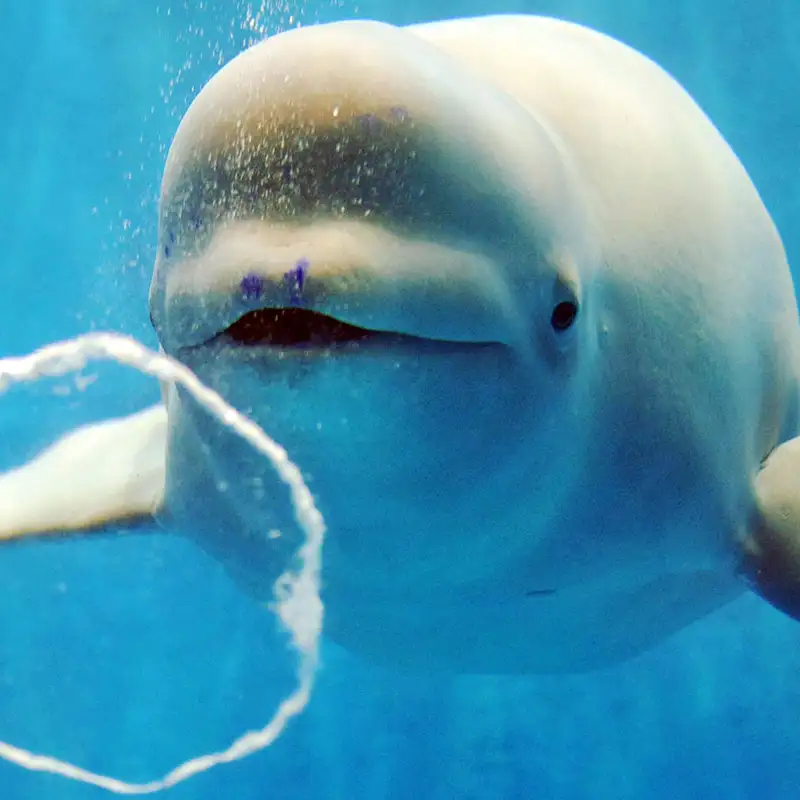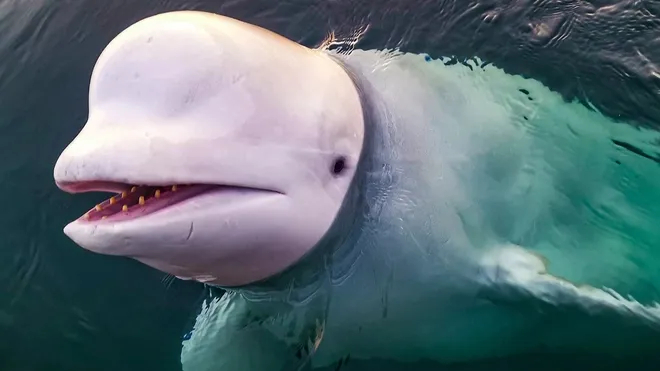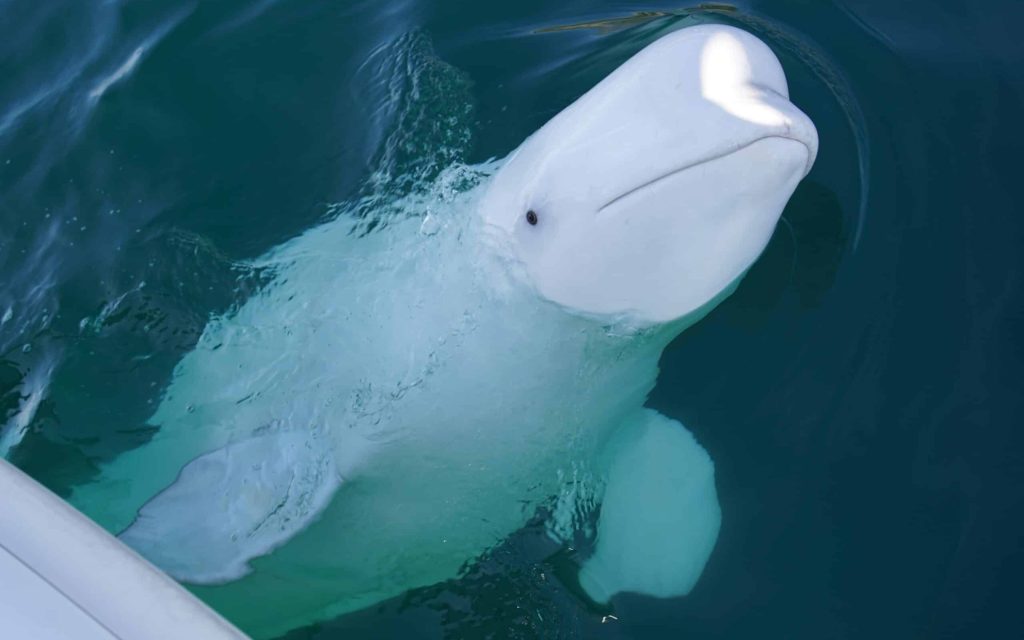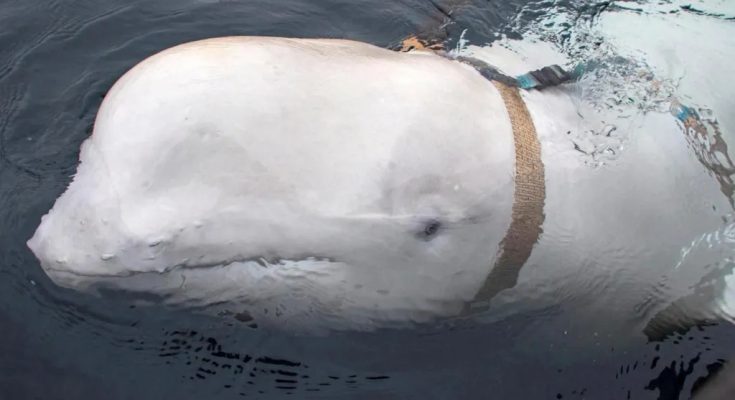A beloved whale thought to have been trained as a “spy” by Russia and found dead earlier this month was not shot, a police autopsy has found.
Animal rights groups had claimed that the beluga, nicknamed Hvaldimir, had been shot when he was found dead on 1 September.
But a forensic examination has concluded “human activity” did not directly lead to the death of the animal, which had died after a stick became lodged in its mouth.

Hvaldmir rose to fame in April 2019 when he was found in Norwegian waters with a camera strapped to his body, prompting claims he could be a spy of sorts.
- Hvaldimir: Seeking sanctuary for whale dubbed a Russian spy
The whale’s body was found floating at sea near the town of Risavika, on Norway’s south-western coast.
Norwegian police opened an investigation after two animal rights groups – One Whale and Noah – filed a complaint into the creature’s death.
One Whale founder Regina Haug said at the time she had seen “multiple bullet wounds” in the carcass.
Initial photographs published by One Whale on social media appeared to show what the group claimed were bullet wounds in Hvaldimir’s bloodied body.

“The injuries on the whale are alarming and of a nature that cannot rule out a criminal act – it is shocking,” said Noah’s director, Siri Martinsen.
But an autopsy showed a stick measuring 35cm in length (14in) and 3cm wide was stuck in the whale’s mouth, police for the South West district said in a statement on Monday.
Police said Hvaldimir had also sustained some “completely superficial” injuries, adding “there was no evidence suggesting that Hvaldimir was shot”.
“There is nothing in the investigations that have been carried out to establish that it is human activity that has directly led to Hvaldimir’s death,” police said.

As a result, police would not investigate further, they added, and a full report will be published in two weeks.
The pale whale rose to fame after being spotted in Norwegian waters five years ago when he was spotted wearing a GoPro camera attached to a harness that read “Equipment of St Petersburg”.
His mysterious attachments prompted speculation that the curious cetacean could be being exploited to undertake espionage missions.
Hvaldimir’s name is a pun on the Norwegian word for whale, “hval,” and Russian President Vladimir Putin’s first name.

Hvaldimir first approached Norwegian boats in April 2019 near the island of Ingoya, about 415km (260 miles) from Murmansk, where Russia’s Northern Fleet is based.
The sighting attracted attention because belugas are rarely seen that far south of the high Arctic.
Russia has a history of training marine mammals such as dolphins for military purposes, and the Barents Observer website has identified whale pens near naval bases in the north-west area of Murmansk.



